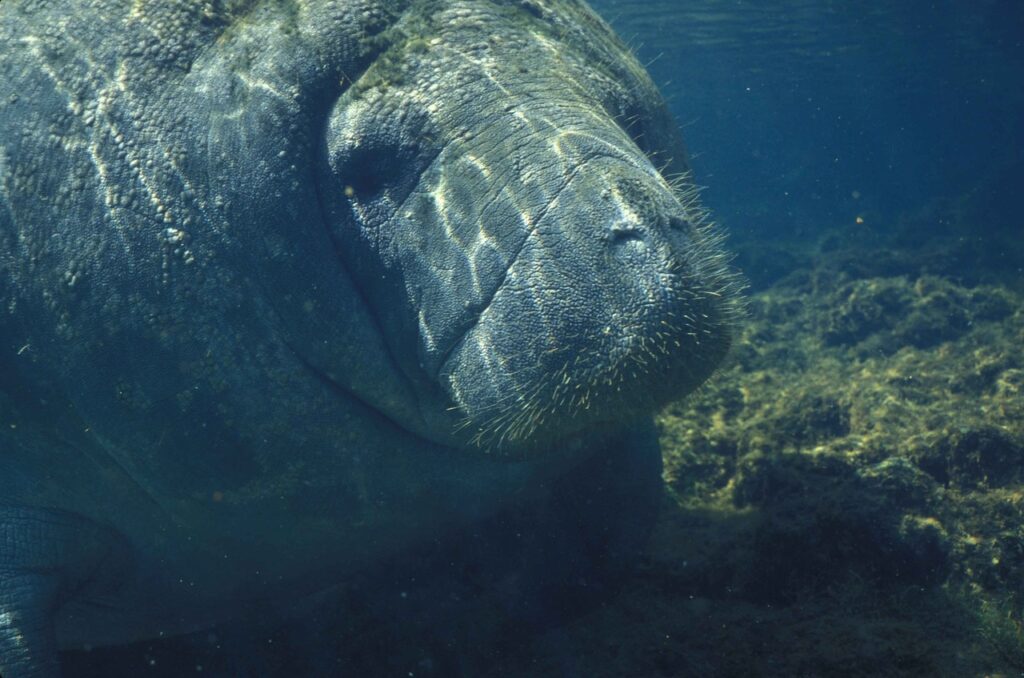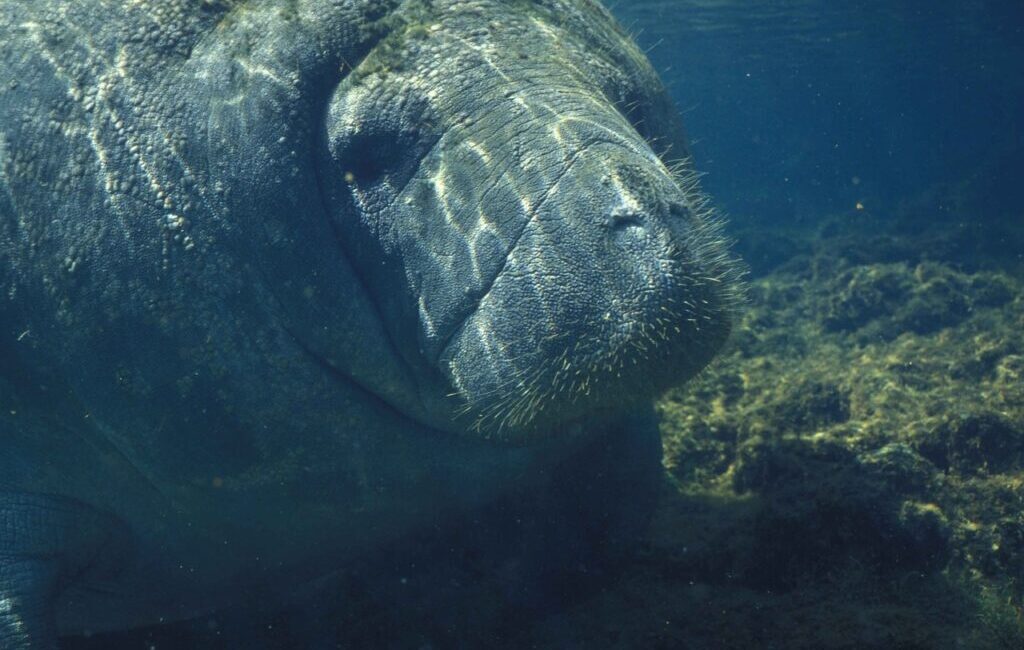Spring is an extremely important season for boaters to go slow and lookout below for manatees! In the spring, these lovable, slow-moving mammals naturally disperse from their winter refuges and to other parts of Florida and beyond.
Manatees depend on water generally warmer than 68 degrees Fahrenheit to survive the winter, so in the fall, they travel to Florida’s springs, power plant discharges, and other sites with warm water. As water temperatures rise in the springtime, manatees gradually leave their winter habitats and are more likely to be found in Florida’s rivers, canals, and nearshore waters.
Despite their size, manatees can be surprisingly difficult to see in the water — especially from a moving boat. A visible snout or large circles on the water are indicators that manatees are below the surface, but it’s still tricky. That’s why it’s so important to follow these simple guidelines:
- Go slow
- Follow all manatee protection zones
- Wear polarized glasses
- Look out below while boating or using personal watercraft
- Always give manatees space

Help protect these gentle giants
Manatee protection zones are marked by waterway signs and maps. You can also learn more about manatee protection at MyFWC.com/Manatee by clicking on “Data and Maps.” From April 1 through November 15, seasonal manatee zones require boaters to slow down in certain areas to prevent manatees from being injured (or even killed) by motorboats or personal watercrafts. Accidental boat strikes continue to be a major threat to Florida’s manatee populations. Florida Fish and Wildlife Conservation Commission (FWC) law enforcement officers are on patrol in state waters to inform boaters of the seasonal manatee speed zones and take appropriate enforcement actions, but boaters are reminded to abide by the regulatory signs seen on the water.
It’s also important to know that manatees are a protected species and it is illegal to feed, harass, or harm them in any way. Physically handling a stranded or distressed manatee can cause additional harm, even if you mean well. Instead, report injured, distressed, sick or dead manatees to the FWC’s Wildlife Alert Hotline at 888-404-FWCC (3922) so trained responders can assist.
The FWC and the U.S. Fish and Wildlife Service take manatee conservation seriously by actively implementing science-based conservation measures that are making a difference for manatees and habitat. You can learn more about their ongoing response efforts by visiting MyFWC.com/Manatee.
Additional resources for boaters, educators, and other interested members of the public are available at MyFWC.com/Manatee. What should you do if you see a manatee? The Viewing Guidelines page provides helpful tips on respectfully viewing manatees, additional guidelines for boat and personal watercraft operators, and information on what you can do to help these amazing aquatic mammals.
Thank you for helping keep these gentle giants safe!

